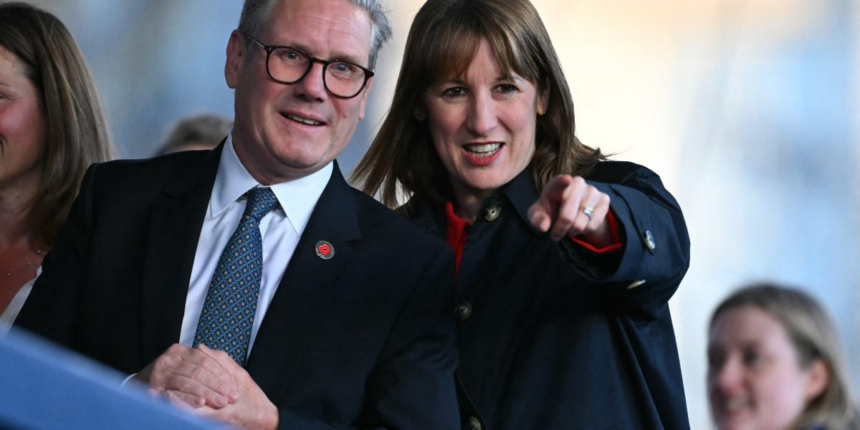Before taking office last July, UK Chancellor of the Exchequer Rachel Reeves met business leaders over a series of breakfasts that became known as the smoked salmon and scrambled eggs offensive. British bosses were clamoring for change after 14 years of rule by the opposition Conservative party, and her pitch went down well.
But a year on from the Labour Party’s landslide election win, that initial optimism has been replaced by discontent over tax increases, persistent red tape and a lack of dialogue with the government. A spike in borrowing costs and a lack of economic growth haven’t helped matters. Companies say they are being forced to cut jobs, delay investment — and in some cases, move their listings altogether.
“I’m struggling to see what’s business-friendly so far,” said Bernard Fairman, executive chairman of Foresight Group, an infrastructure investment firm.
The government is faced with a balancing act — appeasing companies as well as the unions that help support the party financially; appealing to its traditional left-wing base while trying to win over Conservative supporters and voters who may be veering toward the populist Reform UK party. At the moment, it doesn’t appear to be satisfying any of them.
Last week’s market turmoil following an emotional appearance by Reeves in Parliament and Prime Minister Keir Starmer’s move to water down planned welfare reforms has fueled concerns that the party has lost the support of business, which it needs to help deliver jobs and economic growth. Talk that the head of Britain’s biggest company would like to move its listing to the US didn’t help.
“We thought we had a really strong relationship, but then those sorts of surprises where we had significant business cost hikes were a kind of reset moment,” said Stephen Phipson, chief executive officer of manufacturing body Make UK.
The Department for Business and Trade declined to comment.
The British economy was already on shaky ground when Labour took office and has seen little improvement so far. A growth spurt at the start of the year was quickly followed by the sharpest monthly economic contraction since October 2023, driven by US President Donald Trump’s tariffs and the UK government’s own tax hikes.
A high tax burden is “dampening the contribution” retailers can make to the economy, Currys Plc CEO Alex Baldock told reporters on Thursday. “We want to be powering employment and growth, not employing fewer people,” he said.
“The fact that they’ve boxed themselves in, not being able to put up taxes last time round, is going to cause greater pain when they finally put up taxes in this autumn statement,” said Julian Morse, CEO of investment bank Cavendish Plc.
The abolition of a two-century-old tax break for non-domiciled residents — well-heeled residents from overseas referred to as “non-doms” — has also had an outsized impact on the business community.
“If you put taxes up, there are consequences in behavior,” said Foresight’s Fairman. “It doesn’t always mean you raise more money.”
For some CEOs, the bigger concern is lack of interaction with the government. Since the smoked salmon and scrambled eggs offensive, there’s been little dialogue, according to one chief executive who has acted as an advisor to the government. Labour has been open to ideas, he said, but has used them to create policies without a sense-check from businesses. If he were to grade the government’s performance, he added, he would give it a “C.”
He’s not the only person to feel blindsided. “It’s not just the NICs increase, but the inheritance tax increases, the national living wage, that whole package of things,” said Make UK’s Phipson. “Although it was hinted at, there was no real dialogue.”
The government has announced some pro-business measures, such as capping corporation tax at 25%. But even the long-awaited Industrial Strategy — a welcome grand vision for growing the economy, launched last month — lacked depth and clarity, according to two prominent CEOs, who declined to be named discussing sensitive matters.
Andrew Griffith, the shadow business secretary, said companies were hoping for “some enterprise-friendly stability” under Labour. “In 12 short months, they have been firmly disabused of that,” he said. “Other than a few subsidy junkies, you’d be hard pressed to find a single business leader who backed them then, who still does today,” he said.
Still, whatever the positive signs, business is gearing up for a fight if the government wants to lift taxes again.
The government has laid “solid foundations” for growth, said Rain Newton-Smith, chief executive of the Confederation of British Industry. However, she added, the effects are being limited by the cost burden firms are facing. “Companies have responded by cutting back on investment, hiring and pay,” she added, “making it vital that we avoid further tax rises on business at the next budget.”









